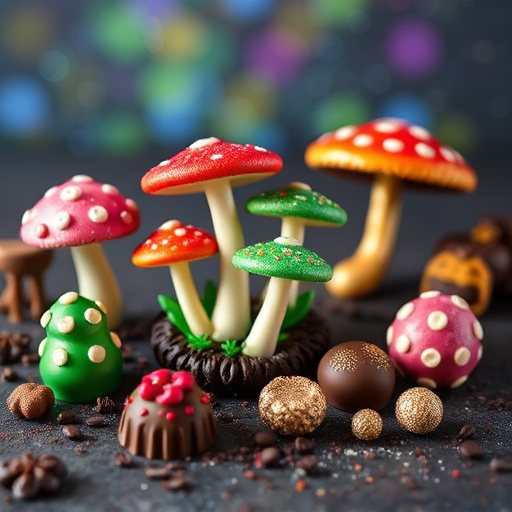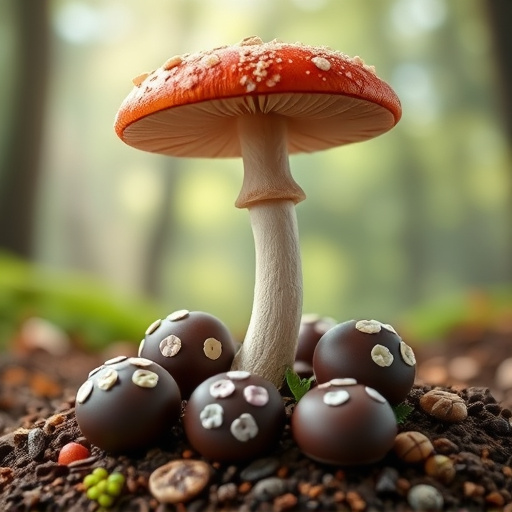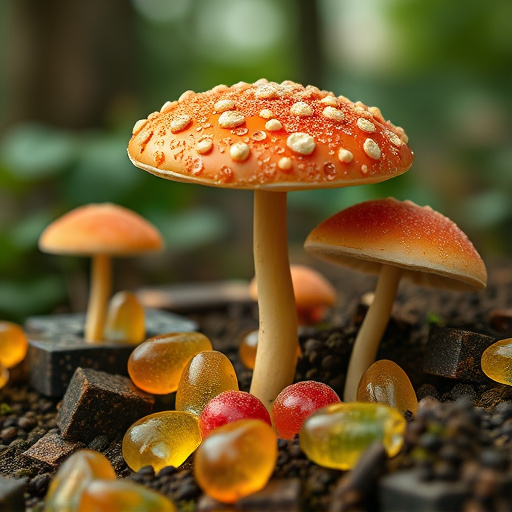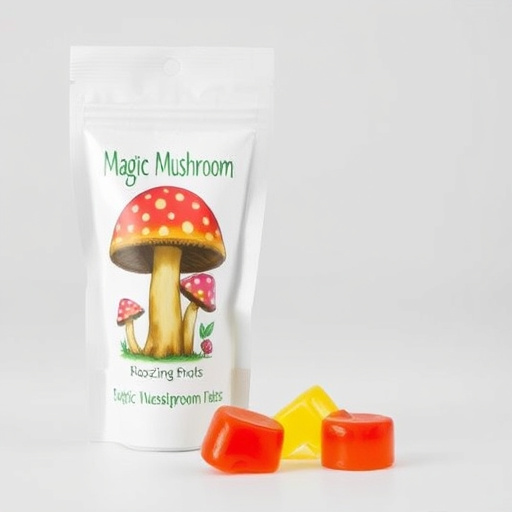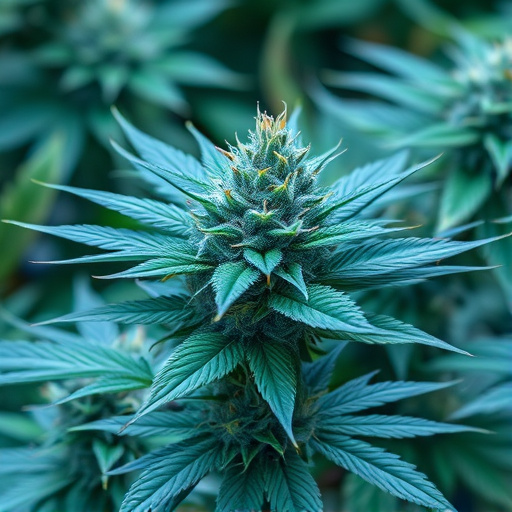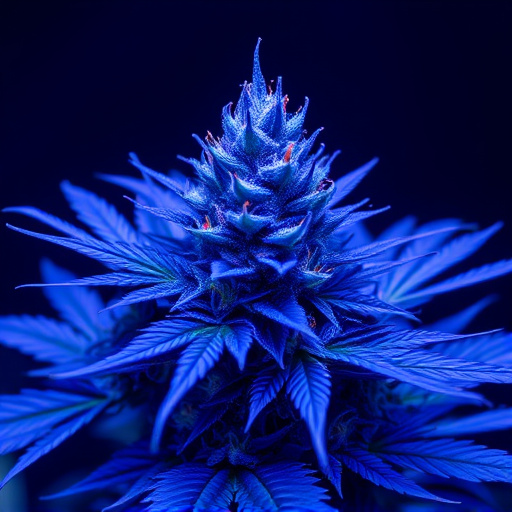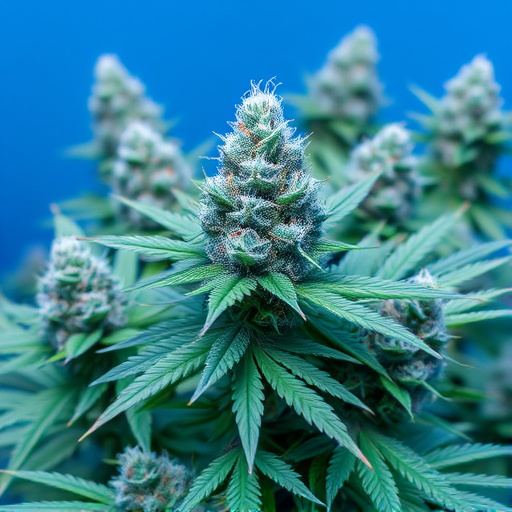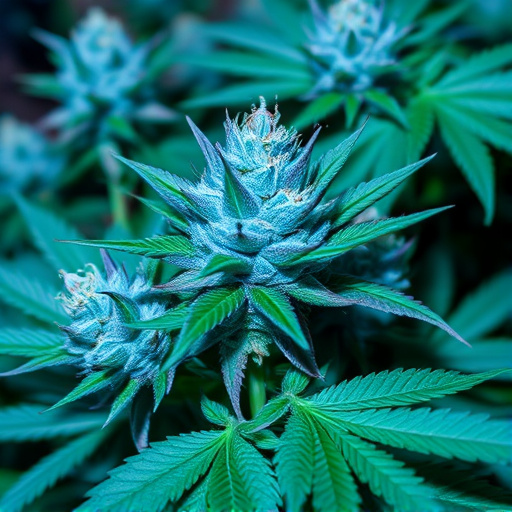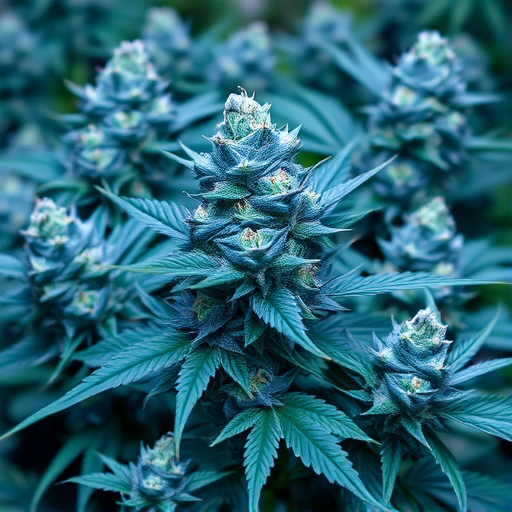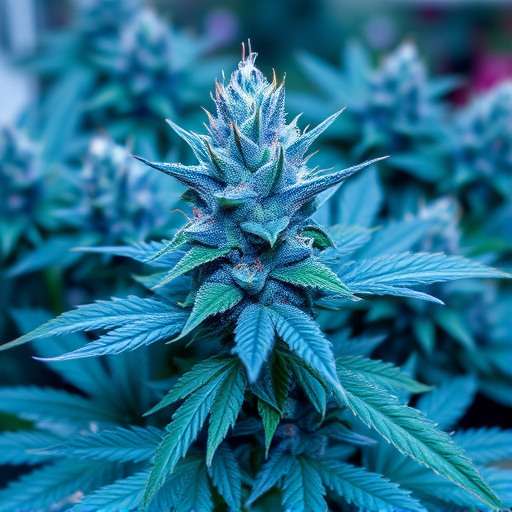Blue marijuana strains, rich in cannabidiol (CBD) and specific terpenes, have gained attention for their potential to alleviate anxiety, depression, and PTSD by interacting with the endocannabinoid system. CBD regulates neurotransmitters like serotonin and dopamine, offering a natural approach to mental health treatment. Terpenes like myrcene and limonene enhance relaxation and sleep quality. However, individual responses vary, and cannabis use carries risks; access is further limited by legal status, highlighting the need for more research to integrate it into traditional mental healthcare.
Can cannabis flower be a game-changer in mental health support? This article explores the potential benefits of incorporating this controversial plant into wellness routines. We delve into the complex world of cannabis compounds, focusing on how blue marijuana strains may alleviate stress and anxiety. By understanding their unique effects, we can navigate the challenges and consider their role in complementary therapy. Uncover the possibilities and be mindful of the journey ahead when exploring cannabis as a tool for mental well-being.
- Understanding Cannabis Compounds and Their Effects on Mental Health
- The Role of Blue Marijuana Strains in Promoting Well-being
- Potential Benefits and Considerations for Incorporating Cannabis into Mental Health Support
Understanding Cannabis Compounds and Their Effects on Mental Health
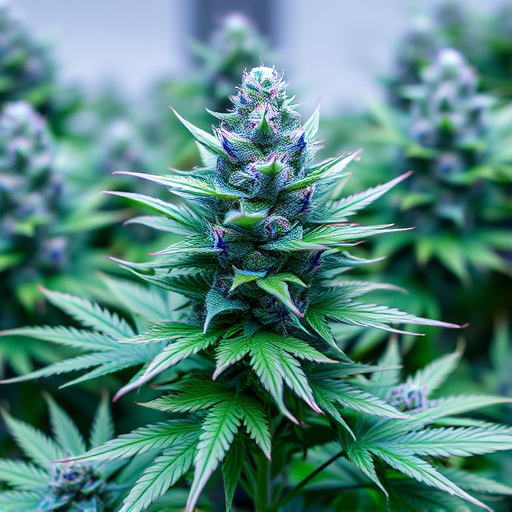
Cannabis contains a variety of compounds, with tetrahydrocannabinol (THC) and cannabidiol (CBD) being the most well-known. THC is responsible for the psychoactive effects associated with marijuana use, inducing feelings of euphoria and relaxation. However, it can also increase anxiety levels in some individuals, especially when consumed in high doses or by inexperienced users. On the other hand, CBD doesn’t produce any mind-altering effects but has gained significant attention for its potential mental health benefits.
Research suggests that blue marijuana strains, rich in CBD, may help alleviate symptoms of anxiety, depression, and post-traumatic stress disorder (PTSD). These strains can interact with the endocannabinoid system (ECS), which plays a crucial role in regulating mood, memory, and stress response. By binding to ECS receptors, CBD can modulate neurotransmitters like serotonin and dopamine, known for their influence on mental health and well-being. Thus, understanding the unique compounds within cannabis offers valuable insights into its potential therapeutic effects on mental health conditions.
The Role of Blue Marijuana Strains in Promoting Well-being
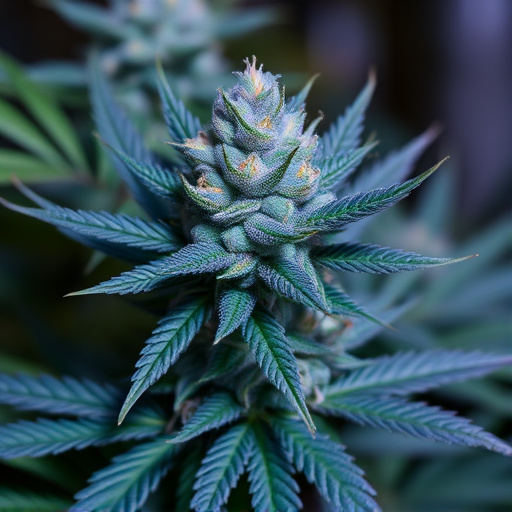
Blue marijuana strains, known for their distinct coloration and unique chemical profiles, have gained attention for their potential to promote mental well-being. These strains often contain elevated levels of cannabidiol (CBD), a non-intoxicating compound that has shown promising results in anxiety and stress reduction. CBD interacts with the body’s endocannabinoid system, which plays a crucial role in regulating mood, memory, and perception of pain. By modulating these processes, blue marijuana strains can help alleviate symptoms associated with depression, post-traumatic stress disorder (PTSD), and other mental health conditions.
Additionally, specific terpenes found in blue marijuana strains contribute to their calming effects. Terpenes are aromatic compounds that not only give cannabis its distinct smell but also influence its therapeutic properties. Strains rich in myrcene, for instance, have been linked to enhanced relaxation and better sleep quality. Limonene, another common terpene, is known for its uplifting and mood-boosting qualities. Thus, the synergistic interaction between cannabinoids and terpenes in blue marijuana strains makes them a compelling option for those seeking natural approaches to improve mental health and overall well-being.
Potential Benefits and Considerations for Incorporating Cannabis into Mental Health Support
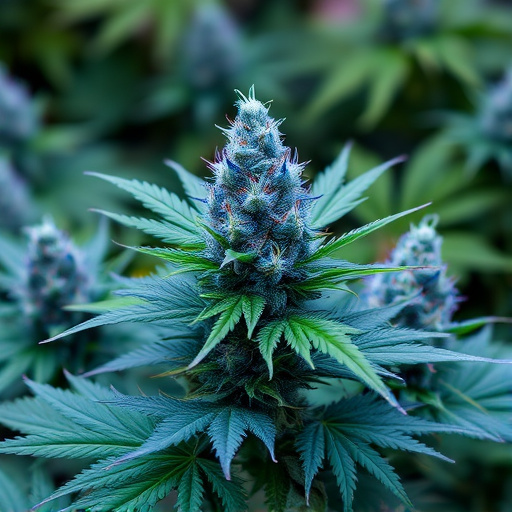
Cannabis, particularly its floral forms like blue marijuana strains, has garnered attention for potential mental health benefits. Studies suggest that certain compounds in cannabis, including cannabinoids and terpenes, may offer therapeutic effects for conditions such as anxiety, depression, and post-traumatic stress disorder (PTSD). These compounds interact with the body’s endocannabinoid system, which plays a role in regulating mood, memory, and stress responses.
When considering incorporating cannabis into mental health support, it’s crucial to approach it with caution. While some individuals report positive experiences, cannabis can also have varying effects on different people, and its use is not without potential risks. The ideal blue marijuana strains for mental health may depend on individual needs and preferences. Moreover, the legal status of cannabis varies globally, limiting access and necessitating further research to ensure safe and effective integration into traditional mental healthcare practices.
While the potential benefits of cannabis flower for mental health are promising, particularly with specific blue marijuana strains known for their calming effects, it’s crucial to approach its incorporation into mental health support with caution. Further research is needed to fully understand its impacts and ideal applications. Until then, individuals considering cannabis as a complementary therapy should consult healthcare professionals for personalized guidance based on their unique mental health needs.


